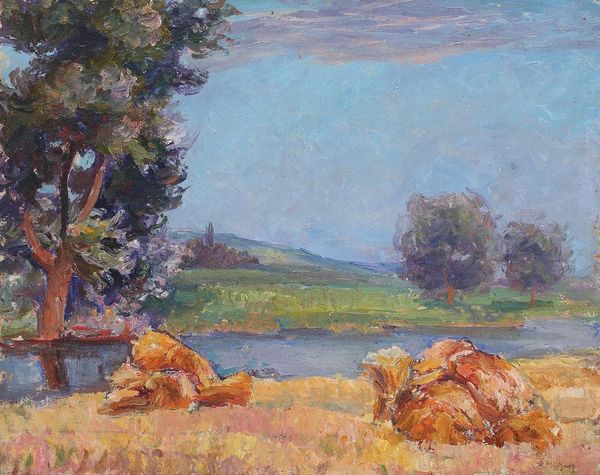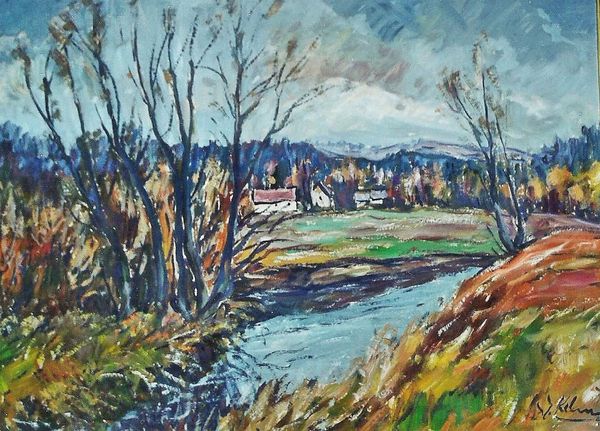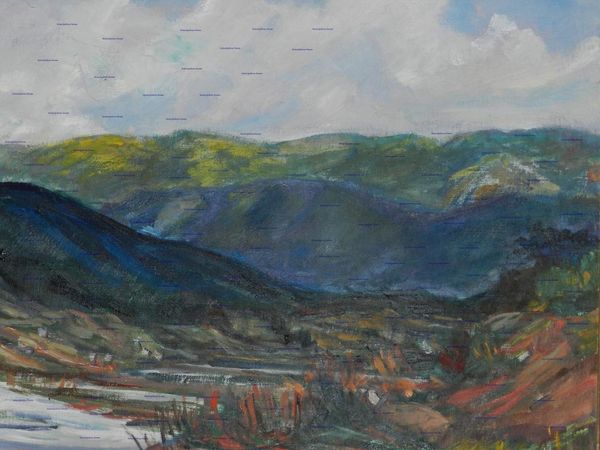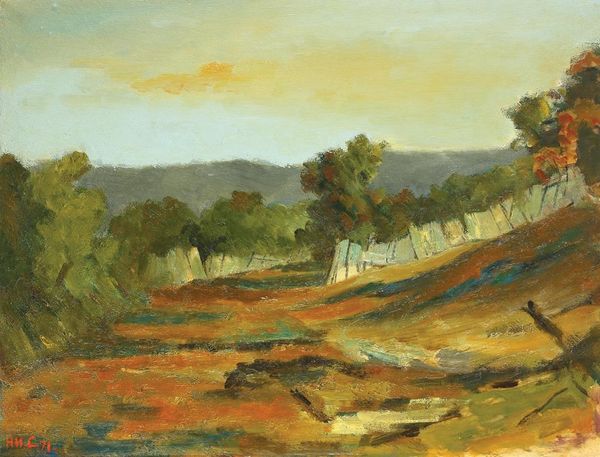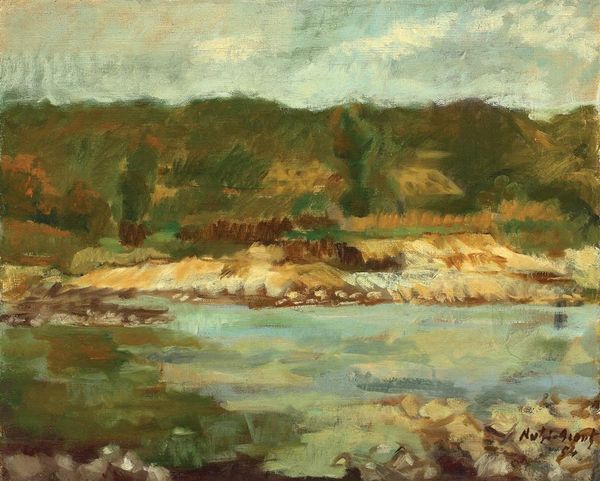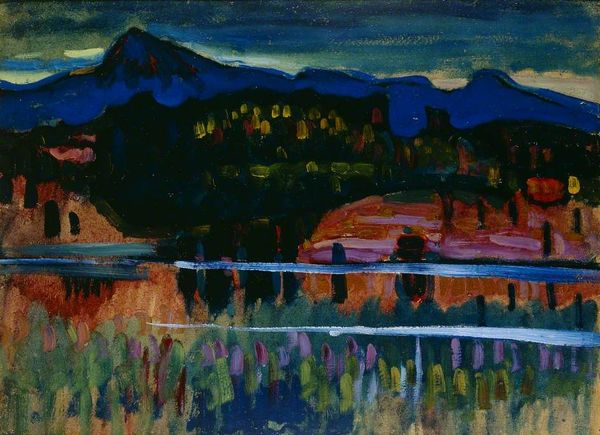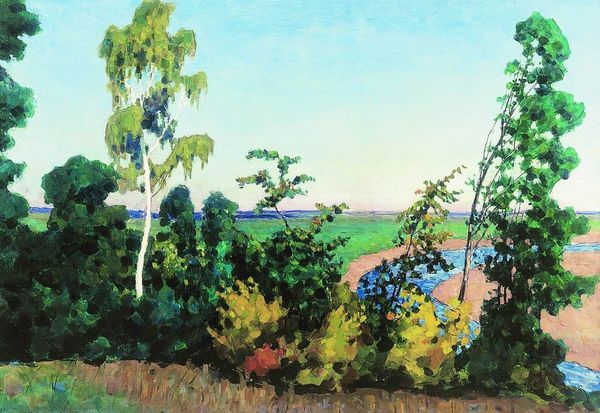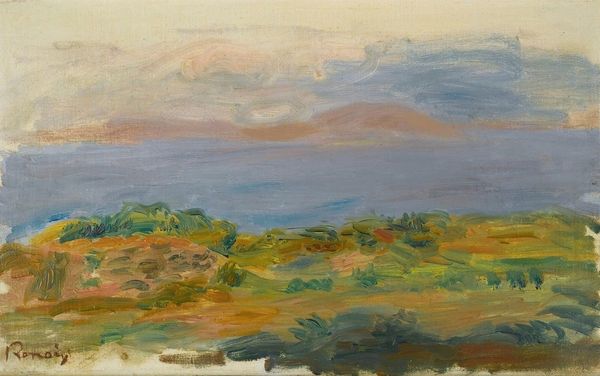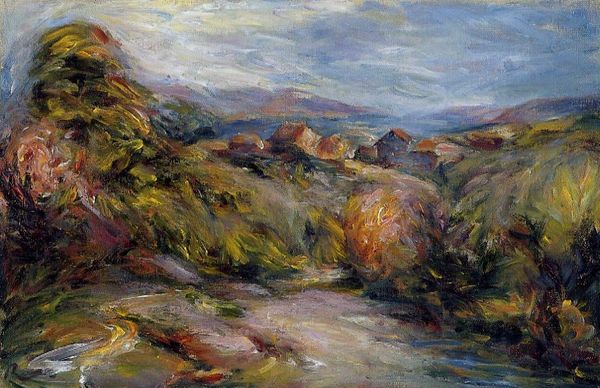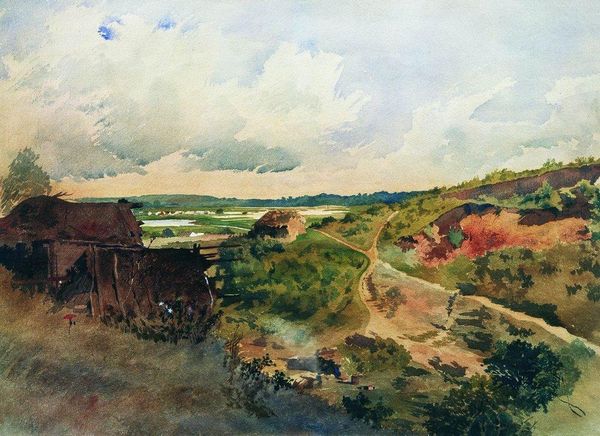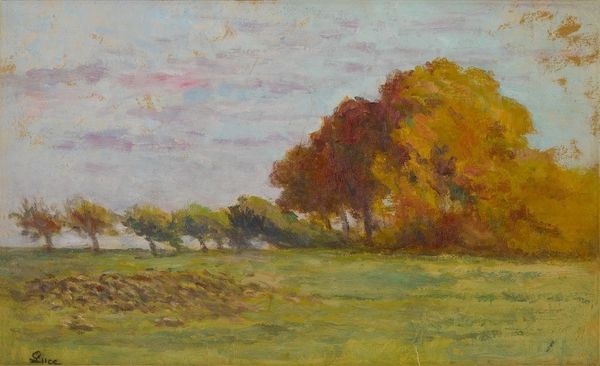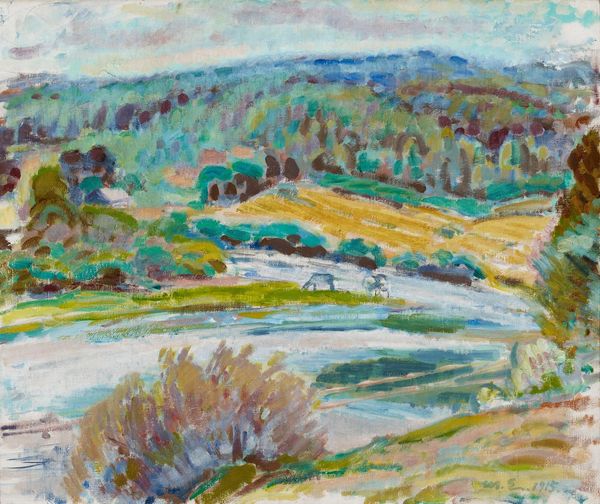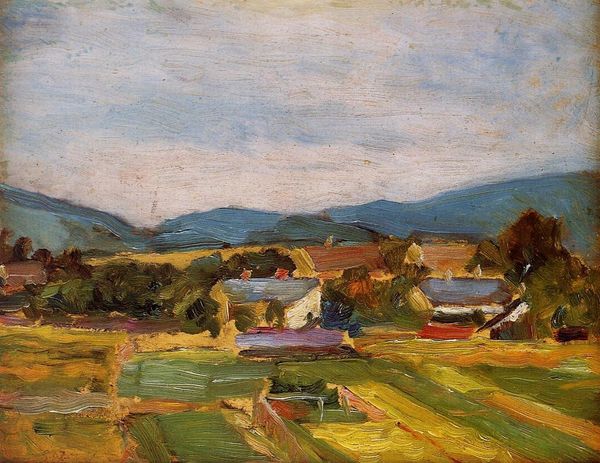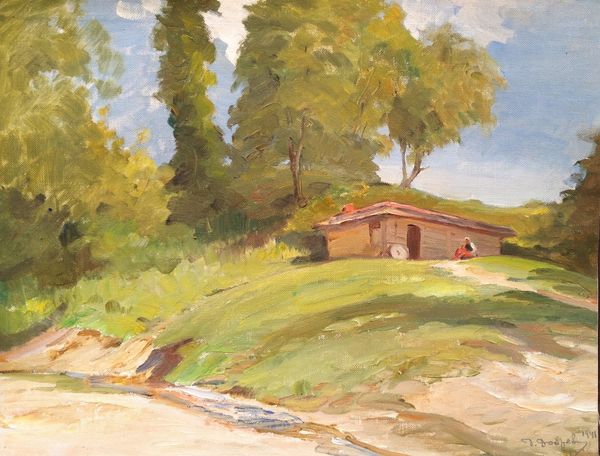
Copyright: Henri Catargi,Fair Use
Curator: Henri Catargi, working in Romania in 1967, gives us this arresting view in "Landscape from Arges Valley." The impasto oil paint evokes a distinct vision of place, created *en plein air.* What springs to mind for you on seeing this landscape, Editor? Editor: Ah, instantly, it feels…unresolved, you know? The paint's thick, almost sculptural, and the colors, while vibrant, don't quite settle into a harmonious whole. It's like catching a fleeting glimpse of a scene and trying to capture it before the feeling vanishes. Curator: Precisely, I think we can contextualize that “unresolved” quality within a larger discussion of place and identity. Catargi, a Jewish artist, often navigated themes of belonging and displacement in his work, set against the sociopolitical backdrop of post-war Romania. Could that perceived tension manifest in the very aesthetic choices of how to depict this scene? Editor: Maybe. Or it could be he was simply frustrated that day, wrestling with the wind and light, right? Look, these plein-air paintings, especially in oil, they’re these beautiful battlegrounds. You're out there grappling with nature's whim, and sometimes the canvas shows the fight more than the vista. Curator: Indeed, you’re raising interesting points about process. From a post-impressionist stance, there is an immediacy and almost an urgency in capturing fleeting light and form. The deliberate brushstrokes work to evoke an experience of nature. Editor: Experience, yeah! But there's something slightly haunting about this. The winding road draws you in but where are the people? Is this place a haven, or…abandoned? Even those bright blues in the sky have a touch of melancholy. Curator: Perhaps Catargi is exploring the concept of liminal space – a transition between states of being or places. The river could be understood as a metaphor for the flow of time and memory, reflecting the transience of life itself in the Eastern Bloc during the Cold War. Editor: Time, memory… Yeah, I get that. It's funny, I came here expecting a pretty landscape, and suddenly, I'm thinking about political tensions and mortality! Curator: The political does bleed into the personal, in this historical reading. It certainly pushes us beyond merely seeing and into considering what the view represents, within a larger context. Editor: You know, sometimes the best art is that which throws you off balance. This definitely did that for me. It's beautiful, unsettling, and makes me want to see the world with newer, maybe less resolved eyes. Curator: I’m delighted to have taken the journey with you and to explore it with the visitor. These layers, combined, add another interesting perspective of engagement to Henri Catargi’s legacy.
Comments
No comments
Be the first to comment and join the conversation on the ultimate creative platform.
